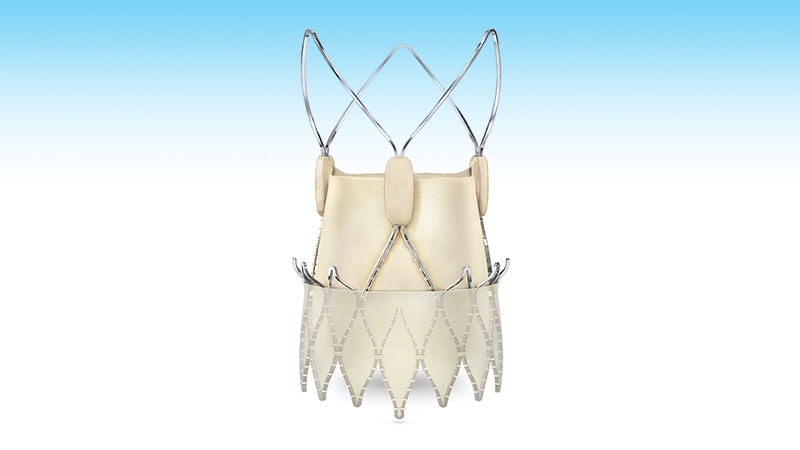Boston Scientific has discontinued production of its ACURATE neo2 heart valves following the release of data showing the devices were linked to higher rates of all-cause death, stroke, and rehospitalization than were other commercially available valves. The company reported the decision in a May 28 regulatory filing.
“While data continue to support the performance of the ACURATE valve system when the product’s optimized instructions for use are followed, this decision was made based on recent discussions with regulators, which resulted in increased clinical and regulatory requirements to maintain approvals in global markets and to obtain approval in new markets,” Boston Scientific told Cardiovascular Business. “Therefore, related commercial, clinical, research and development, and manufacturing activities will cease.”
The company said it also would be halting production of its ACURATE PRIME valves, although the reason for that move was not clear.
Disappointing Results
The decision on the neo2 follows the publication May 21 of two articles from the study, one in the Lancet on the outcomes for patients and the other in the Journal of the American College of Cardiology on a relatively high rate of under-expansion of the valves.
Despite its use in 50 other countries, ACURATE neo2 had not yet been approved by the US Food and Drug Administration.
The Lancet study, which the company funded, involved 1469 patients undergoing transcatheter aortic valve replacement (TAVR). Its aim was to determine whether ACURATE neo2 was not inferior to its competitors.
The randomized, controlled trial found ACURATE neo2 was associated with a 6.6% higher rate of a combined outcome of all-cause death, stroke, and rehospitalization after 1 year than was observed in a control group who received SAPIEN 3 or 3 Ultra or Evolut valves.
The rates were also higher for each outcome (hazard ratio: 1.30 for all-cause death, 1.68 for stroke, and 1.57 for rehospitalization). Rates of cardiovascular mortality and myocardial infarction also were significantly higher at the same time point, according to the researchers.
ACURATE neo2 was developed after its predecessor, ACURATE neo, a self-expanding valve for TAVR, did not achieve outcomes similar to those of SAPIEN and Evolut valves in randomized controlled trials.
A problem with paravalvular leakage was found with ACURATE neo, prompting the development of neo2, which included a sealing skirt to prevent leakage, said Raj Makkar, MD, professor and associate director of the Smidt Heart Institute at Cedars-Sinai Medical Center in Los Angeles, and lead author of both papers.
“The sealing skirt worked, and the valvular regurgitation rates were lower than in ACURATE neo, but they were nonetheless still higher than in the control valves,” said, who receives research support from Boston Scientific as well as other manufacturers of heart valves.
In addition to poor results on the longer-term outcomes, the ACURATE neo2 was associated with a lower rate of success, determined by whether the device was installed and operated successfully, did not require further interventions, and was not linked to complications within 30 days.
One result was positive for ACURATE neo2. “The hemodynamics were actually quite good,” Makkar said. “This trial also highlights that, when it comes to clinical outcomes, it’s not just the hemodynamics. A lot of other things come into play.”
“The ACURATE neo2 valve is an easy-to-use valve, and smaller, observational studies had suggested that outcomes were good,” Makkar added. “But you need the rigor of a randomized controlled trial. In a randomized setting, the clinical outcomes were not as robust as they were with the other valve platforms.”
Valve Expansion a Concern
In a post-study analysis, the researchers went back to see if they could find any contributing factors to the ACURATE neo2’s poorer outcomes. When they reviewed angiograms taken during TAVR procedures, they noticed many of the valves had not fully expanded.
“We found that under-expansion was associated with more frequent primary endpoints in contrast to valves that were properly expanded,” Makkar said.
“If you modified the device such that the radial strength were better, and we did more aggressive pre- and post-dilation, we could perhaps improve the expansion of the valve,” Makkar said. “But whether that would lead to better clinical outcomes remains to be investigated and proven…. Dilation might increase the risk of some complications, such as stroke and aortic root injury. It is reasonable to try to safely expand the valve, but we should not expand the valve at any cost.”
Makkar reported research support from Boston Scientific, Edwards Lifesciences, Medtronic, Abbott, and JenaValve.
Carolyn Brown is a freelance scientific journalist, editor and publishing consultant in Ottawa, Canada.
Source link : https://www.medscape.com/viewarticle/acurate-heart-valves-halted-after-consequential-study-2025a1000eri?src=rss
Author :
Publish date : 2025-06-02 07:01:00
Copyright for syndicated content belongs to the linked Source.
